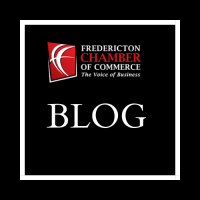In December, MLA Gerry Lowe introduced Bill 9 into the New Brunswick legislature, which, if implemented, would include the value on machinery and equipment on commercial properties in property tax assessments – which would cause property tax bills to skyrocket. Real estate and tax experts Turner Drake calculated that "Manufacturers can expect to see a 5 to 10 fold increase [in their property tax bill] while other businesses may see anywhere from 20% to 100%”. The City of St John made a similar proposal in the fall of 2017 (where Mr Lowe was a city councilor at the time), which was dismissed by then-Finance Minister Cathy Rogers. Of course, Mr Lowe and Ms Rogers are now both members of the Liberal opposition caucus.
Bill 9 would have a devastating impact on private-sector capital investments, as companies would be heavily disincentivized to invest and innovate, since their reward at the end of the day will be an increase in property taxes. That would be a big problem in any jurisdiction, but perhaps even moreso in New Brunswick as the province’s current Economic Growth Plan (introduced by the previous government) identifies the lack of capital investment and innovation as two of the five ‘challenges’ to expanding our economy
Although the current government has said that they do not support the bill, with the recent dynamic nature of provincial politics, we are concerned that this will not be the last time that someone will try to introduce a tax that is punitive in nature as it relates to business investment. The only place in Canada that has this type of tax is Alberta, where Calgary and Edmonton are exempted – in that jurisdiction, it’s an oilsands tax essentially, since there are plenty of properties there that are just machinery and equipment – this is not the case in New Brunswick. Therefore the bill in and of itself does not align with tax policy best practices across the country, but perhaps more worrisome is that it is being presented out of context of the very report used as the basis for its introduction. The Kitchen and Slack report actually calls for a full review of the province’s property tax regime, not to just tax equipment and machinery as another one-off tax change. In this regard we agree that New Brunswick’s business, citizens and economy need a comprehensive tax review – starting with the property tax regime.
It is evident from the ever-increasing complexity of the tax code that tax policy has become a political tool at the provincial and federal levels. There is no chance that more tinkering and cherry-picking certain parts of the tax code will lead to a more fair and modern tax policy, that encourages economic growth for our province. People, capital and many business operations are all highly mobile today. Our province is already struggling with these very issues as we feel the pull to other parts of the country that otherwise have a better economy and more opportunities for people and businesses.
The relationship between the province’s tax structure, fiscal position, its ability to deliver services and economic growth are symbiotic and inextricably linked. It’s one of the reasons our organization’s motto is Stronger Community Through Business Prosperity – a concept that we believe is equally applicable provincially. Governments must carefully balance their current short-term revenue needs with their long-term growth needs. Policy decisions by government must be viewed through different lenses, but one of those has to be an economic-development lens.
It has been suggested that Bill 9 is only meant to target heavy equipment and big business. First – that is not how Bill 9 was written or presented for first reading in the legislature – the Turner Drake alert makes that clear. Second, and perhaps more importantly – we should not be targeting big businesses either. Small and medium-sized businesses rely very heavily on the success of larger companies. Large companies have long supply chains that smaller businesses feed into, they provide well-paying jobs, and they have money to invest. And invest it they will – whether it’s in New Brunswick or somewhere else with a more favourable business environment.
The economy is a complex ecosystem that depends on businesses of all sizes, employees, customers, infrastructure, capital investments and much more. It also depends on governments not to create barriers to growth. If we really want to grow as a province and get on our own two feet – this has to be the focus: real, sustained economic growth. Without that, we’re just shuffling the deck chairs on the Titanic and hoping that other provinces can continue to keep New Brunswick afloat. New Brunswick receives billions annually in transfer payments, our debt is many billions more. Private sector success and growth is the only way for governments to take in revenue, so it’s critical that our businesses are not taken for granted, nor punished for growth – but that’s exactly the message that Bill 9 sends and promises to do if adopted.
The business community and members of the Fredericton Chamber of Commerce along with other chambers and business associations in the province are extremely concerned about this proposed legislation…. and we think you should be also. If you want your province to provide an environment for business to grow, create employment and yes, continue to pay their share of taxes… ask your MLA to vote against Bill 9.
1 https://www.cbc.ca/news/canada/new-brunswick/irving-oil-jd-irving-ltd-industry-tax-equipment-property-assessments-fair-municipal-1.4973519
2 https://www2.gnb.ca/content/dam/gnb/Departments/eco-bce/Promo/EconomicGrowthPlan/PDFs/EconomicGrowthPlan2016.pdf – page 4
3 http://www.saintjohn.ca/site/media/SaintJohn/Kitchen%20&%20Slack%20Report.pdf

